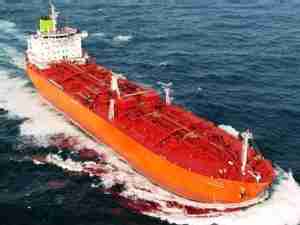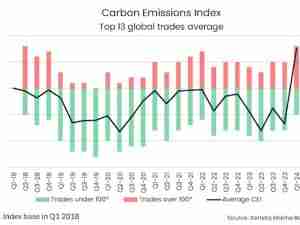US Commerce Secretary Carlos M. Gutierrez is calling for global port leaders' support of US free-trade and immigration policies.
Speaking to more than 800 port leaders from around the globe at the International Association of Ports and Harbors' 25th biennial World Ports Conference, Gutierrez said such Bush Administration policies will help further tremendous growth for ports.
'Ports are our gateway to the global marketplace,' Gutierrez said in a May 1 luncheon address at the Hilton Americas Hotel in Houston, noting that 99% of the volume of US overseas trade enters or leaves by ship. 'But they can only generate economic activity and support jobs if they are well-run, efficient and easy to navigate.'
Gutierrez called the US Department of Commerce's National Oceanic and Atmospheric Administration (NOAA) 'a key partner in providing the tools to safely and efficiently move cargo and people through our coastal waters,' including by furnishing weather and water data through its Physical Oceanographic Real-Time System (PORTS).
He added that the Bush Administration has just proposed reauthorization of the Hydrographic Services Improvement Act, aimed at promoting safe, efficient and environmentally sound marine navigation while supporting maritime commerce.
Gutierrez cited the Port of Houston as an example of the economic benefits of maritime commerce. The port, which anticipates a 35% boost in cargo activity over the next three years with its Bayport Container Terminal coming online, already generates $118 billion in total economic activity in Texas.
'Clearly, ports play an important role in international commerce,' he said. 'And the vehicle to expand that commerce is free-trade agreements.'
Gutierrez said the Bush Administration has taken to heart an 1802 mandate by President Thomas Jefferson to 'cultivate peace and commerce with all nations.' The words are inscribed on a wall at the Commerce Department's headquarters building in Washington.
'We believe that commerce, investment and trade provide a better way of life by helping elevate standards of living and increasing educational and social opportunities,' he said. 'And, clearly, it's not just America that is engaging in global trade. A generation ago, trade accounted for 17% of the world's economy. Today, it's about 30% of the world's economy ' and growing.
'Trade promotes security worldwide by encouraging individuals and countries to engage in commerce rather than conflict,' Gutierrez said. 'Countries that trade with each other usually don't fight.'
He said that is why, under President Bush, the United States has implemented free-trade agreements with 11 nations and is pushing for more such agreements.
'Our trade agreements have thrown open the doors to international commerce,' he said, noting that US exports are becoming an increasingly important part of the US economy, with export growth last year surpassing import growth.
Two years after the signing of the Dominican Republic-Central America Free-Trade Agreement (DR-CAFTA), the United States has moved from a trade deficit with the six Central American countries to a trade surplus stance, with annual exports of $19.6 billion to these nations exceeding imports of $18.6 billion, Gutierrez said.
'This is not the time for protectionism, and, in fact, it never is,' he said. 'It is time to continue to engage and lead' Protectionism never protects.'
Gutierrez said pending free-trade pacts with Colombia, Korea, Panama and Peru bode to open market opportunities to nations that combine to have almost 125 million consumers and a gross domestic product in 2006 of $1.1 trillion.
'These agreements are the benchmark to determine whether we continue to look outward and engage the world, or if we are going to embrace the failed policies of the past, building economic walls around our country,' he said.
Gutierrez, who was born in Cuba in 1953, moved with his family to the United States at age seven and in 1999 became president and ch










